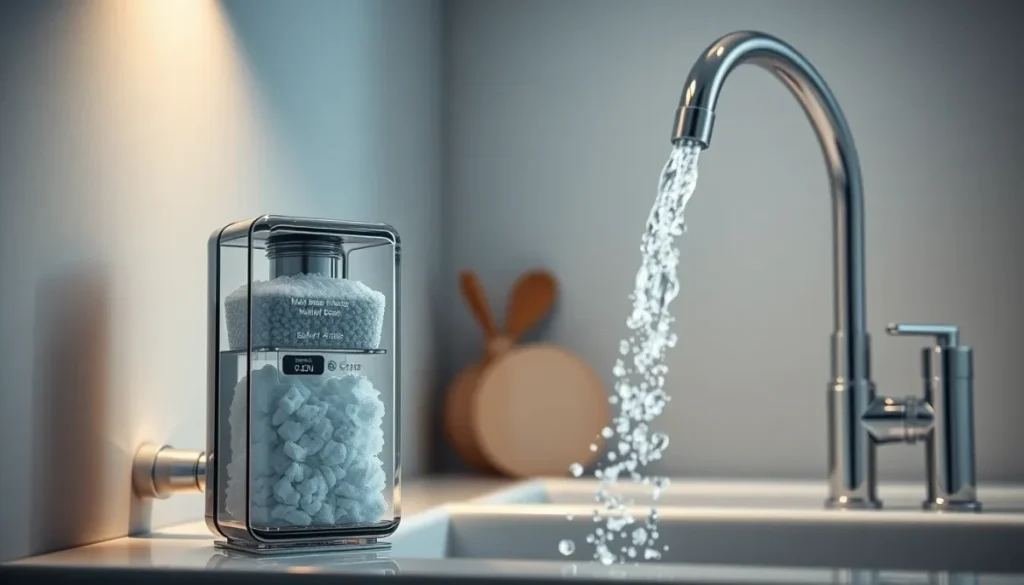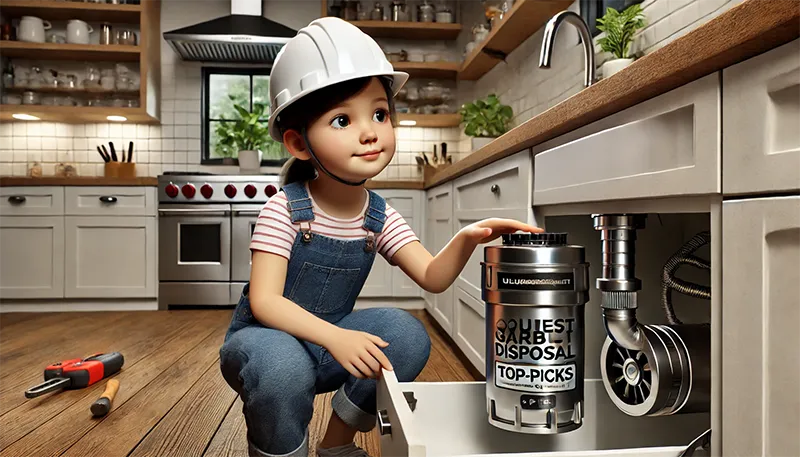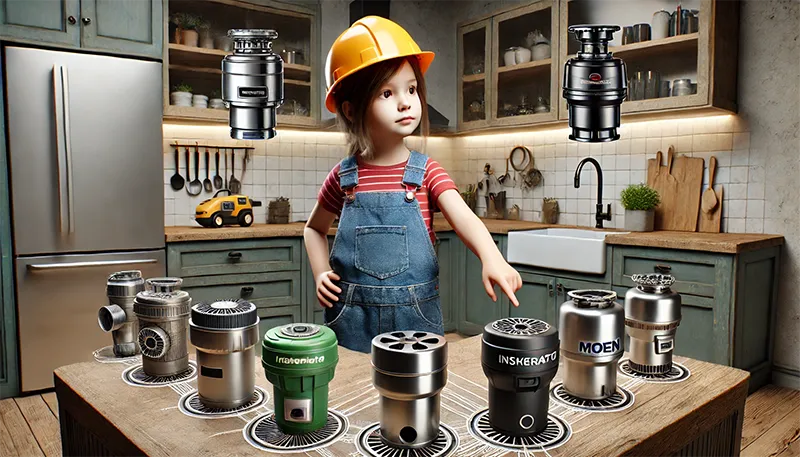Water softening has become increasingly important for homeowners dealing with hard water issues. According to the U.S. Geological Survey, approximately 85% of American households have hard water, which can cause various problems in homes. As homeowners seek solutions, the debate between traditional salt-based softeners and salt-free water softeners has gained prominence.
Understanding Water Hardness
Before delving into the specifics of salt-free water softeners, it’s crucial to understand what water hardness means. Hard water contains high levels of dissolved minerals, primarily calcium and magnesium. These minerals can cause scale buildup in pipes, appliances, and fixtures, reducing their efficiency and lifespan.
Effects of Hard Water
Hard water can lead to several issues in the home:
- Scale buildup in pipes and appliances
- Reduced efficiency of water heaters
- Dry skin and hair
- Spots on dishes and glassware
- Faded and stiff laundry
Given these problems, many homeowners turn to water softening solutions to improve their water quality.
Traditional Salt-Based Water Softeners
Traditional water softeners use an ion exchange process to remove hardness minerals from water. Here’s how they work:
- Hard water enters the softener tank filled with resin beads.
- The resin beads are negatively charged and attract positively charged calcium and magnesium ions.
- As water passes through the tank, hardness minerals are trapped by the resin beads.
- Soft water, now free of hardness minerals, flows out for use in the home.
- Periodically, the system regenerates using a salt brine solution to flush out trapped minerals and recharge the resin beads.
While effective at removing hardness minerals, salt-based softeners have some drawbacks, including regular salt refills, increased water usage during regeneration, and potential environmental concerns due to salt discharge.
Salt-Free Water Softeners: A New Approach
Salt-free water softeners, also known as water conditioners, offer an alternative approach to addressing hard water issues. These systems don’t actually remove hardness minerals but instead alter their chemical structure to prevent scale formation.
How Salt-Free Water Softeners Work
Salt-free water softeners typically use one of several technologies:
- Template Assisted Crystallization (TAC): This method transforms dissolved hardness minerals into harmless microscopic crystals that cannot adhere to surfaces.
- Electromagnetic water treatment: Uses an electromagnetic field to alter the behavior of minerals in water.
- Catalytic media: Employs a catalytic material to change the structure of hardness minerals.
The most common and effective method among salt-free water softeners is TAC technology. As water passes through the system, hardness minerals are converted into inactive microscopic crystals that flow harmlessly through plumbing and appliances without causing scale buildup.
Pros of Salt-Free Water Softeners
Salt-free water softeners offer several advantages over traditional salt-based systems:
- No salt required: Eliminates the need for regular salt refills, reducing maintenance and ongoing costs.
- Environmentally friendly: Does not produce wastewater or discharge salt into the environment.
- No electricity needed: Most salt-free systems operate without electricity, potentially lowering energy costs.
- Retains beneficial minerals: Unlike salt-based softeners, salt-free systems don’t remove calcium and magnesium, which can be beneficial for health.
- Low maintenance: Requires minimal upkeep compared to traditional softeners.
- No slimy feel: Some users prefer the feel of water treated by salt-free systems, as it doesn’t have the slippery sensation associated with traditionally softened water.
Cons of Salt-Free Water Softeners
While salt-free water softeners have many benefits, they also have some limitations:
- Not true softening: Salt-free systems condition water rather than remove hardness minerals, so water tests will still show hardness.
- Less effective on extremely hard water: May not be as effective as salt-based systems for very high levels of water hardness.
- Limited scale prevention: While they reduce scale formation, some minimal scaling may still occur over time.
- No soap lathering improvement: Unlike salt-based softeners, salt-free systems don’t enhance soap lathering or reduce soap usage.
- Potential for existing scale: May not remove existing scale buildup in pipes and appliances.
Comparing Salt-Free and Traditional Water Softeners
To help homeowners make an informed decision, let’s compare salt-free water softeners with traditional salt-based systems across several key factors:
| Factor | Salt-Free Water Softeners | Traditional Salt-Based Softeners |
|---|---|---|
| Hardness removal | Alters mineral structure | Removes hardness minerals |
| Maintenance | Minimal | Regular salt refills and cleaning |
| Environmental impact | No wastewater or salt discharge | Produces wastewater and salt discharge |
| Electricity usage | Usually none | Requires electricity for operation |
| Effectiveness on very hard water | May be less effective | Highly effective |
| Initial cost | Moderate to high | Moderate to high |
| Operating cost | Low | Ongoing salt and water costs |
| Health considerations | Retains beneficial minerals | Adds small amount of sodium to water |
Choosing the Right Salt-Free Water Softener
When selecting a salt-free water softener, consider the following factors:
- Water hardness level: Have your water tested to determine the hardness level and choose a system rated for your specific needs.
- Flow rate: Ensure the system can handle your household’s water usage without restricting flow.
- Installation requirements: Some systems may require professional installation, while others can be DIY projects.
- Certification: Look for systems certified by reputable organizations like NSF International or the Water Quality Association.
- Warranty and customer support: Choose a product with a solid warranty and reliable customer service.
Top Salt-Free Water Softener Options
Here are some highly-rated salt-free water softeners to consider:
- SpringWell FutureSoft Salt-Free Water Softener: Uses TAC technology and is known for its effectiveness and low maintenance.
- Aquasana Whole House Water Filter and Salt-Free Softener: Combines filtration and conditioning capabilities for comprehensive water treatment.
- Pelican NaturSoft Salt-Free Water Softener: Employs a natural softening process that prevents scale buildup without chemicals.
- APEC Water Systems FUTURA-15 Salt-Free Water Conditioner: Compact and easy to install, suitable for smaller households.
- Eddy Electronic Water Descaler: Uses electromagnetic technology for a budget-friendly option.
Making the Switch: Tips for Transitioning to a Salt-Free Water Softener
If you’re considering switching from a traditional salt-based softener to a salt-free system, here are some tips to ensure a smooth transition:
- Water testing: Have your water professionally tested to understand its composition and hardness level.
- System sizing: Ensure the salt-free water softener is appropriately sized for your household’s water usage.
- Plumbing inspection: Have a professional inspect your plumbing system, especially if you’ve had a salt-based softener for many years.
- Appliance check: Clean or descale appliances like dishwashers and washing machines before installing the new system.
- Monitoring: After installation, monitor your water quality and appliance performance to ensure the system is working effectively.
- Adjustment period: Be aware that it may take some time to notice the full effects of your new salt-free water softener.
Installation and Maintenance of Salt-Free Water Softeners
One of the advantages of salt-free water softeners is their relatively simple installation and maintenance process. Many systems can be installed by homeowners with basic plumbing skills, though professional installation is always an option for those who prefer it.
Installation Steps
- Choose an appropriate location near the main water line entering your home.
- Shut off the main water supply.
- Cut the main water line and install bypass valves.
- Connect the salt-free water softener to the water line.
- Secure all connections and check for leaks.
- Turn the water supply back on and flush the system according to manufacturer instructions.
Maintenance Requirements
Salt-free water softeners generally require minimal maintenance:
- Periodically check for leaks or signs of wear.
- Replace filter cartridges (if applicable) according to manufacturer recommendations.
- Some systems may require occasional cleaning or descaling of the media.
Always follow the manufacturer’s guidelines for maintenance to ensure optimal performance and longevity of your salt-free water softener.
Health Implications of Salt-Free Water Softeners
While both traditional and salt-free water softeners are generally safe for consumption, there are some health considerations to keep in mind:
- Mineral retention: Salt-free systems retain beneficial minerals like calcium and magnesium, which can contribute to daily dietary needs.
- No added sodium: Unlike salt-based softeners, salt-free systems don’t add sodium to the water, which can be beneficial for those on low-sodium diets.
- Skin and hair health: Some users report improvements in skin and hair condition when switching to salt-free systems, possibly due to the retention of natural minerals.
Environmental Considerations
As environmental concerns become increasingly important, many homeowners are considering the ecological impact of their water treatment choices. Salt-free water softeners offer several environmental benefits:
- No salt discharge: Traditional softeners can release salt into the environment, potentially affecting local ecosystems. Salt-free systems eliminate this issue.
- Water conservation: Salt-free softeners don’t require backwashing or regeneration cycles, saving thousands of gallons of water annually.
- Energy efficiency: Most salt-free systems operate without electricity, reducing overall energy consumption.
- Chemical-free operation: By avoiding the use of salt or other chemicals, these systems have a lower environmental footprint.
Cost Considerations
When evaluating the cost of a salt-free water softener, consider both initial and long-term expenses:
Initial Costs
- Purchase price of the system
- Installation costs (if professional installation is chosen)
Long-term Costs
- Minimal ongoing maintenance costs
- Potential energy savings due to lack of electrical components
- No expenses for salt or potassium chloride refills
While the upfront cost of a salt-free water softener may be comparable to or slightly higher than a traditional system, the long-term savings on maintenance, salt, and energy can make it a cost-effective choice for many homeowners.
Regulatory Considerations
When installing a salt-free water softener, it’s important to be aware of any local regulations or restrictions:
- Building codes: Some areas may have specific requirements for water treatment system installation. Check with your local building department.
- Water quality regulations: Certain regions have regulations about water treatment systems. Ensure your chosen system complies with local standards.
- Environmental regulations: Some areas restrict the use of salt-based softeners due to environmental concerns, making salt-free systems an attractive alternative.
Future Trends in Water Softening Technology
As water treatment technology continues to evolve, we can expect to see further advancements in salt-free water softening:
- Improved efficiency: Ongoing research aims to enhance the effectiveness of salt-free systems, particularly for very hard water.
- Smart technology integration: Future systems may incorporate smart features for monitoring water usage, system performance, and maintenance needs.
- Combination systems: We may see more integrated systems that combine salt-free conditioning with other water treatment technologies for comprehensive water quality improvement.
- Nanotechnology: Emerging nanotechnology applications could lead to more effective and efficient salt-free water treatment methods.
Case Studies: Salt-Free Water Softeners in Action
To illustrate the real-world impact of salt-free water softeners, let’s look at a couple of case studies:
Case Study 1: Suburban Family Home
The Johnson family in suburban Chicago installed a salt-free water softener after experiencing persistent scale buildup on fixtures and appliances. After six months, they reported:
- Reduced scale formation on faucets and showerheads
- Improved efficiency of their water heater
- Lower maintenance needs compared to their previous salt-based system
- Satisfaction with the taste and feel of their water
Case Study 2: Small Business Owner
A small restaurant owner in Arizona switched to a salt-free water softener to address hard water issues while reducing environmental impact. Results after one year included:
- Decreased scale buildup in dishwashers and ice machines
- Reduced maintenance costs for water-using appliances
- Positive feedback from staff about improved water quality
- Alignment with the business’s eco-friendly initiatives
FAQs
To further assist homeowners in understanding salt-free water softeners, here are answers to some frequently asked questions:
Q: Do salt-free water softeners actually soften water?
A: Technically, salt-free water softeners don’t “soften” water in the traditional sense. They condition the water by altering the structure of hardness minerals, preventing them from forming scale. The minerals remain in the water but in a form that doesn’t adhere to surfaces.
Q: How long do salt-free water softeners last?
A: With proper maintenance, salt-free water softeners can last 10-15 years or more. The lifespan depends on the specific system, water quality, and usage patterns.
Q: Can a salt-free water softener remove existing scale?
A: While salt-free water softeners can prevent new scale formation, they typically don’t remove existing scale. However, over time, some systems may help gradually reduce existing scale buildup.
Q: Are salt-free water softeners effective for well water?
A: Salt-free water softeners can be effective for well water, but it’s important to have your water tested first. Well water can contain various contaminants that may require additional treatment beyond what a salt-free softener provides.
Q: Do I need to use special soaps or detergents with a salt-free water softener?
A: Unlike with traditional softeners, you may not need to reduce soap usage with a salt-free system. However, you might not experience the enhanced lathering effect that salt-based softeners provide.
Conclusion: Embracing the Future of Water Treatment
Salt-free water softeners represent a significant advancement in home water treatment technology. They offer an environmentally friendly, low-maintenance alternative to traditional salt-based systems while addressing many of the issues associated with hard water.
While they may not be the perfect solution for every household, salt-free water softeners provide numerous benefits that make them an attractive option for many homeowners. From reduced scale buildup and appliance efficiency to environmental considerations and potential health benefits, these systems are changing the way we think about water treatment.
As you consider your options for addressing hard water issues in your home, take the time to research and understand the capabilities of salt-free water softeners. Consult with water treatment professionals, read user reviews, and consider your specific water quality needs to determine if a salt-free system is the right choice for your home.
Remember, investing in water quality is an investment in your home’s infrastructure, your family’s comfort, and potentially even your health. Whether you choose a salt-free water softener or another water treatment option, taking steps to improve your water quality can have far-reaching benefits for years to come.
We encourage you to share your experiences with water treatment solutions on social media or in home improvement forums. Your insights could help other homeowners make informed decisions about their water quality. Have you tried a salt-free water softener? What has been your experience? Join the conversation and help others navigate the world of water treatment options. Meta Description: Discover the benefits and limitations of salt-free water softeners. Learn how they compare to traditional systems and find out if they’re right for your home.



